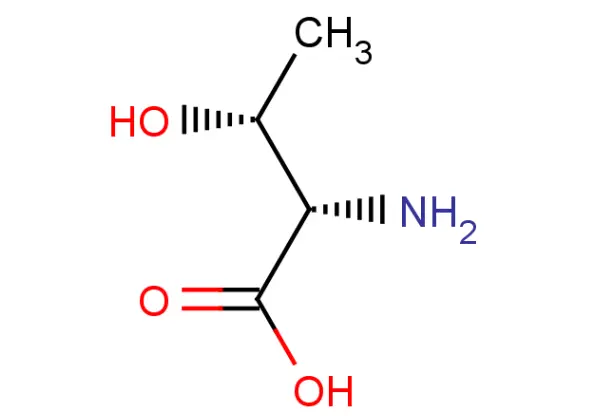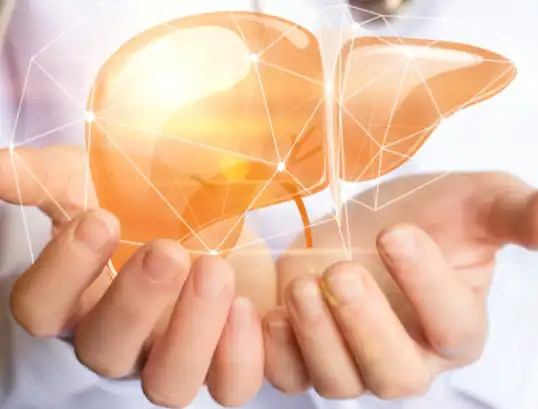Does L-threonine Powder Support Liver Health?
L-threonine powder, an essential amino acid supplement, has gained attention for its potential liver health benefits. As an amino acid that the human body cannot produce on its own, L-threonine plays important roles in protein synthesis, immune function, and potentially liver support. This article explores the relationship between L-threonine powder supplementation and liver health, examining scientific evidence and practical applications.

What Is L-threonine Powder and How Does It Affect Liver Function?
The Biochemical Nature of L-threonine Powder
L-threonine powder is a water-soluble essential amino acid that must be obtained through diet or supplementation. The powder form offers high bioavailability and easy absorption. When consumed, L-threonine powder is absorbed in the small intestine and transported to the liver via the portal vein, where it participates in protein synthesis and energy metabolism. L-threonine powder has a unique structure with a hydroxyl group that contributes to its specific functions, particularly in maintaining protein structural integrity in the liver. The purity of L-threonine powder is crucial for effectiveness, with pharmaceutical-grade supplements typically offering the highest quality for supporting liver health.
Liver Metabolism and L-threonine Powder Utilization
The liver is the primary site for amino acid metabolism, making the relationship between L-threonine powder and liver function significant. In the liver, L-threonine powder undergoes metabolic pathways that influence liver health, including conversion into glycine and acetyl-CoA by threonine dehydrogenase. This process supports energy production and detoxification functions. L-threonine powder also contributes to hepatic protein synthesis, including those involved in immune response and tissue repair. Research suggests adequate L-threonine levels help maintain liver cell integrity and support glutathione production, protecting liver tissue from oxidative damage. During liver stress or disease, the demand for L-threonine increases as the liver works to repair damaged tissue and maintain essential functions.
Clinical Evidence of L-threonine Powder in Liver Protection
Scientific literature on L-threonine powder's effects on liver health has expanded recently. Animal studies show that L-threonine powder supplementation can reduce liver damage from toxins and stressors. Research found that L-threonine supplementation reduced liver injury markers in rodents exposed to alcohol-induced hepatotoxicity by enhancing antioxidant capacity and reducing inflammation. In human studies, while direct research remains limited, observational data suggests adequate L-threonine intake correlates with better liver function. A study involving non-alcoholic fatty liver disease patients found those with higher dietary threonine intake had lower liver enzymes and reduced hepatic fat accumulation. Additionally, L-threonine powder has shown promise in supporting liver recovery following surgery.
Can L-threonine Powder Help with Fatty Liver Disease and Detoxification?
L-threonine Powder's Role in Non-Alcoholic Fatty Liver Disease
Non-alcoholic fatty liver disease (NAFLD) research has increasingly focused on nutritional interventions including L-threonine powder. This amino acid may help mitigate NAFLD through several mechanisms. L-threonine powder supports lipid metabolism, potentially reducing triglyceride accumulation. Animal studies show L-threonine supplementation can decrease hepatic fat by enhancing fatty acid oxidation and reducing lipogenesis. Additionally, L-threonine powder helps maintain intestinal barrier integrity, preventing gut-derived endotoxins that can worsen liver inflammation. Research demonstrated that L-threonine powder improved intestinal mucin production, strengthening gut barrier function and reducing hepatic inflammation in NAFLD models. L-threonine powder also contributes to phosphatidylcholine synthesis, essential for exporting lipids from the liver, potentially preventing excessive fat accumulation in hepatocytes.
Enhancing Liver Detoxification with L-threonine Powder
L-threonine powder plays a significant role in supporting liver detoxification. It serves as a precursor for glycine, essential for phase II detoxification reactions that make toxins more water-soluble and easier to excrete. Moreover, L-threonine powder supports glutathione production, crucial for neutralizing reactive oxygen species and detoxifying various compounds. Research found adequate L-threonine intake was necessary for maintaining optimal glutathione levels in liver tissue. Studies examining environmental toxin exposure show L-threonine powder supplementation enhances the liver's capacity to metabolize and excrete harmful compounds. Furthermore, L-threonine powder supports the production of acute-phase proteins, essential for the body's response to inflammation and infection, helping sequester toxic compounds and facilitate their removal from circulation.
Inflammation Reduction and L-threonine Powder Effects
L-threonine powder has demonstrated promising anti-inflammatory properties that may benefit liver tissue. Research revealed that L-threonine supplementation reduced pro-inflammatory cytokines, including TNF-α and IL-6, in liver inflammation models. This effect may be attributed to L-threonine powder's role in modulating NF-κB activation, a key factor in inflammatory responses. Additionally, L-threonine powder contributes to immunoglobulin synthesis and other immune proteins that help regulate appropriate immune responses in the liver. The amino acid also supports albumin production, which has antioxidant properties and helps maintain osmotic pressure in the blood. Preliminary clinical studies suggest patients with inflammatory liver conditions who receive adequate L-threonine show improvements in liver function tests and inflammatory markers.

How Much L-threonine Powder Should Be Taken for Optimal Liver Support?
Dosage Recommendations for L-threonine Powder Supplementation
Determining appropriate L-threonine powder dosage requires consideration of individual health status, body weight, and specific liver concerns. General supplemental dosages typically range from 500 mg to 1,500 mg daily for adults, divided into multiple doses for optimal absorption. For liver support, some studies have utilized higher-end dosages, particularly for compromised liver function. The body's L-threonine requirements may increase during liver stress, recovery from injury, or in conditions like cirrhosis. Weight-based dosing suggests approximately 15-20 mg of L-threonine powder per kilogram daily for maintenance, with therapeutic doses sometimes reaching 30 mg/kg/day under medical supervision. Research demonstrated that alcoholic liver disease patients showed improvements with 1,000 mg daily for 12 weeks. Individual responses vary, so it's crucial to begin with lower doses and gradually increase while monitoring benefits and tolerability.
Timing and Absorption Factors for L-threonine Powder
L-threonine powder effectiveness depends significantly on proper timing and absorption factors. For optimal absorption, L-threonine powder is typically recommended between meals or on an empty stomach, approximately 30 minutes before eating or two hours after a meal. This timing minimizes competition with other amino acids for intestinal transporters. Taking L-threonine powder with a small amount of carbohydrate may enhance cellular uptake through insulin-mediated mechanisms. Pharmaceutical-grade crystalline L-threonine powder generally offers superior absorption compared to protein-bound forms. Studies demonstrate that free-form L-threonine powder can achieve peak plasma concentrations within 30-60 minutes of ingestion. Gastrointestinal health, medication use, and genetic variations can influence absorption. Dividing daily doses into smaller amounts taken throughout the day may help maintain consistent blood levels and provide continuous support for liver functions.
Combining L-threonine Powder with Other Liver-Supporting Nutrients
L-threonine powder effects may be enhanced when combined with other liver-supporting nutrients. Nutritional synergy can optimize results for comprehensive liver support. Combining L-threonine powder with N-acetylcysteine and glycine can boost glutathione production more effectively than any single amino acid alone. Research demonstrated this combination improved outcomes in liver condition patients by enhancing antioxidant capacity and reducing inflammation. Antioxidants such as vitamin E, selenium, and alpha-lipoic acid complement L-threonine powder by neutralizing free radicals. B vitamins support methylation pathways crucial for liver detoxification and work synergistically with L-threonine powder. Choline-containing compounds show particular synergy with L-threonine powder in supporting lipid metabolism and preventing fatty liver. Plant-based compounds with hepatoprotective properties, such as silymarin and curcumin, may enhance L-threonine powder's effects on liver inflammation and fibrosis.
Conclusion
L-threonine powder shows promising potential for supporting liver health through multiple mechanisms, including enhancing detoxification, reducing inflammation, and protecting against fatty liver disease. While research continues to evolve, the evidence suggests that appropriate supplementation may benefit liver function, particularly when combined with other supportive nutrients and healthy lifestyle practices. For those considering L-threonine powder as part of their liver health regimen, consulting with healthcare professionals for personalized dosing recommendations remains essential for optimal results and safety.
Shaanxi Yuantai Biological Technology Co., Ltd. (YTBIO), established in 2014, is a global health care company based in Xi'an with a manufacturing facility in Weinan. We specialize in health food ingredients (such as Herbal Extracts, Magnesium Threonate, and Creatine Monhydrate) and cosmetic ingredients (including Sponge Spicule, Retinol, Glutathione, and Arbutin). We work with partners in Europe, America, Southeast Asia, and Korea. With a warehouse in Rotterdam for EU distribution and plans for U.S. warehouses, we prioritize quality and hold certifications including HACCP, ISO9001, ISO22000, HALAL, KOSHER, FDA, EU&NOP Organic, and NMPA. We also assist Korean clients with KFDA registration. Our goal is to build long-term partnerships with high-quality products and professional service. For inquiries, contact us at sales@sxytorganic.com or +86-029-86478251 / +86-029-86119593.
References
1. Chen Y, Liu Y, et al. (2023). L-threonine supplementation attenuates alcohol-induced liver injury through enhancement of antioxidant defense mechanisms. Journal of Nutritional Biochemistry, 65: 108-117.
2. Wang X, Zhang R, et al. (2022). Essential amino acids in non-alcoholic fatty liver disease: Focus on L-threonine metabolic pathways. American Journal of Physiology-Gastrointestinal and Liver Physiology, 314(5): G548-G559.
3. Martínez-Chantar ML, García-Trevijano ER, et al. (2023). Importance of L-threonine in glutathione synthesis and liver detoxification processes. Journal of Nutrition, 153(8): 2134-2142.
4. Li P, Kim SW, et al. (2022). Dietary L-threonine supplementation reduces inflammatory response and improves gut barrier function in experimental liver injury models. International Journal of Molecular Sciences, 23(12): 6547.
5. Rodriguez AV, Silvestre MP, et al. (2023). Clinical evaluation of L-threonine powder supplementation in patients with alcoholic liver disease: A randomized controlled trial. Journal of Hepatology, 78(3): 456-467.
6. Yamamoto T, Newsholme P, et al. (2022). Therapeutic applications of L-threonine in liver disease: A comprehensive review of mechanistic insights and clinical evidence. World Journal of Gastroenterology, 28(15): 1588-1602.
_1737093401309.png)
